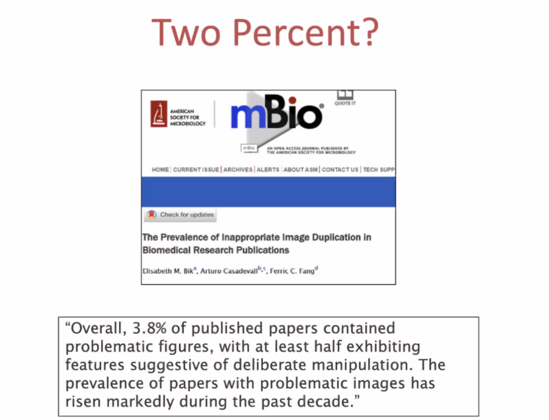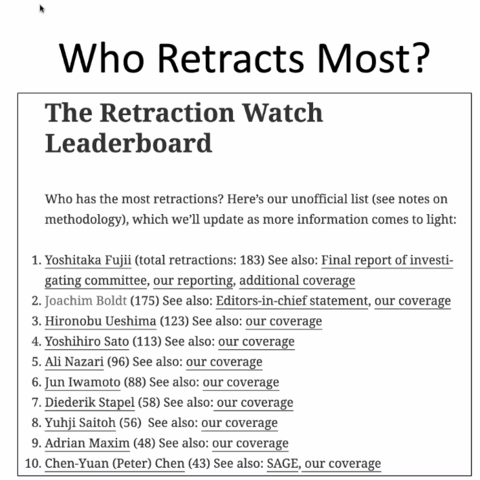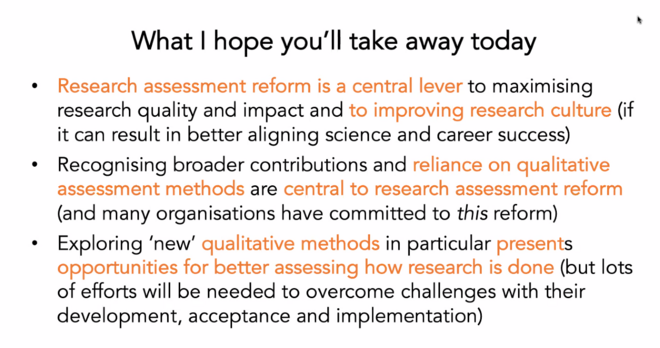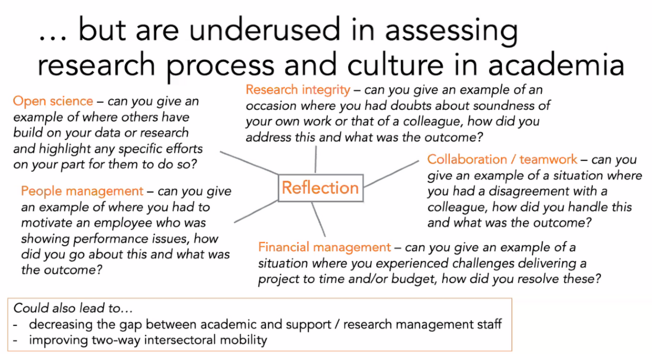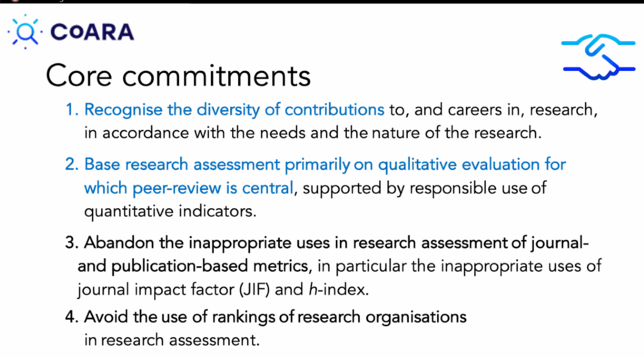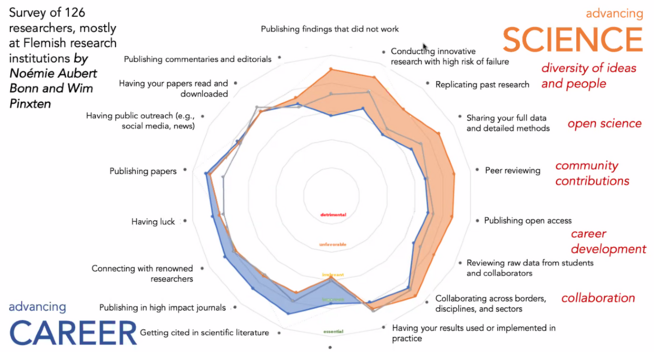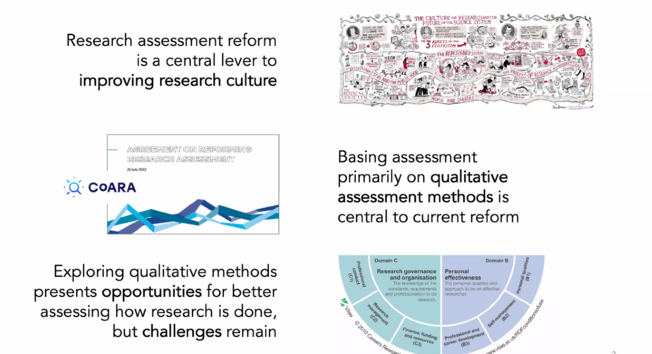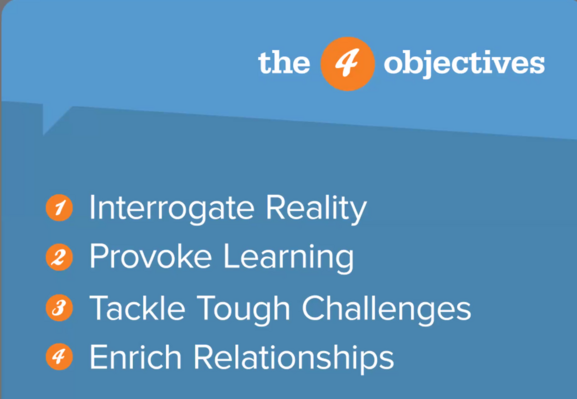UKRIO · @ukrio
439 followers · 470 posts · Server mstdn.science🧵on 🐦 on our webinar this morning on co-production with Kate Pahl and Sarah Whatley:
https://twitter.com/UofGPE/status/1673989427473907714
#ukrioevents #coproduction #researchethics #webinar
UKRIO · @ukrio
431 followers · 425 posts · Server mstdn.scienceAt CRUK, they aim to build reflective practice around experimental design says @Retropz.
Researchers must get things right before they start their experiments. When researchers draft their articles, they must send to Andrew (or Catherine Winchester at Beatson) to check.
UKRIO · @ukrio
431 followers · 425 posts · Server mstdn.science"I think we do annoy quite a lot of people!", laughingly admits Esther Murray, because there's no culture of #PeerReview outside grant and journal review. In the QMUL health education department, they offer collegial review alongside ethics review. #UKRIOevents
UKRIO · @ukrio
431 followers · 425 posts · Server mstdn.scienceDoes the idea of methods review at the institutional level put the cart before the horse, asks @paulralph? Reviewers don't agree on research quality, so it is not reliable: solution must be everyone using the same rubric, e.g. https://acmsigsoft.github.io/EmpiricalStandards/about/
UKRIO · @ukrio
431 followers · 425 posts · Server mstdn.scienceShould we have methods review before a research study starts, asks @lakens?
We could have equivalents to #ResearchEthics committees to do this. Other solutions include Registered Reports.
Objections: not necessary, redundant, attacks academic freedom.
#researchethics #ukrioevents #researchmethods
UKRIO · @ukrio
431 followers · 425 posts · Server mstdn.scienceMany retracted articles are cited without acknowledging the retraction, notes Ivan Oransky. The Retraction Watch database is linked to many literature databases - you can get alerts to avoid getting caught out.
#ukrioevents #retractions #PublicationEthics
UKRIO · @ukrio
431 followers · 425 posts · Server mstdn.scienceSigns of change seen by @ivanoransky - #PublicationEthics "czars": https://www.statnews.com/2018/11/21/research-misconduct-journals-hiring-research-integrity-czars/
- Researchers "doing the right thing" on retractions
#UKRIOevents #Retractions
#PublicationEthics #ukrioevents #retractions
UKRIO · @ukrio
431 followers · 425 posts · Server mstdn.scienceA major reason for a rise in #Retractions is post-publication #PeerReview, especially in @PubPeer notes @ivanoransky
Sleuths look for anomalies in figures, text, statistics, and data.
#retractions #peerreview #ukrioevents #PublicationEthics #whistleblowers
UKRIO · @ukrio
431 followers · 425 posts · Server mstdn.scienceCurrent retraction rate is 0.1%: @ivanoransky thinks it should be 2%, based on work by @microbiomdigest (others say 5-10%). #UKRIOevents #PublicationEthics
#ukrioevents #PublicationEthics
UKRIO · @ukrio
431 followers · 425 posts · Server mstdn.scienceWho is retracting the most? https://retractionwatch.com/the-retraction-watch-leaderboard/
Many in anaesthesiology, due to a focus on fraud from those journals. @ivanoransky notes that men are overrepresented compared to women: https://journals.plos.org/plosone/article?id=10.1371/journal.pone.0284403 #UKRIOevents
UKRIO · @ukrio
431 followers · 425 posts · Server mstdn.scienceMany of the common reasons for #retractions are misconduct, says @ivanoransky
Some are detected better than before, e.g. image manipulation/duplication, redundant publication, & plagiarism; some are rising, e.g., fake #PeerReview & #PaperMills.
#retractions #peerreview #PaperMills #ukrioevents #PublicationEthics
UKRIO · @ukrio
431 followers · 425 posts · Server mstdn.scienceWhy are #retractions rising, asks @ivanoransky?
Two main possibilities:
1. More misconduct, which makes up 2/3 of reasons for retraction;
2. Better detection, by sleuths and journals.
#retractions #ukrioevents #retractionwatch #PublicationEthics
UKRIO · @ukrio
431 followers · 425 posts · Server mstdn.scienceThe godfather of retractions, the top dog of watchdogs, Dr. @ivanoransky himself, is our afternoon keynote speaker.
#Retractions are rising, but not enough. About 1/1000 publications are retracted, with a lag. 40,000 total are in the @retractionwatch database. #UKRIOevents
UKRIO · @ukrio
431 followers · 425 posts · Server mstdn.scienceTake-home messages from Karen Stroobants. #UKRIOevents #ResearchCulture #ResearchAssessment #ReformingRA
#ukrioevents #ResearchCulture #researchassessment #ReformingRA
UKRIO · @ukrio
431 followers · 425 posts · Server mstdn.scienceCompetency-based assessment is underused in academia, notes Karen Stroobants. #UKRIOevents #ReformingRA #ResearchAssessment #ResearchCulture
#ukrioevents #ReformingRA #researchassessment #ResearchCulture
UKRIO · @ukrio
431 followers · 425 posts · Server mstdn.scienceShould how research is done by captured in quantitative metrics, asks Karen Stroobants?
She refers to @lizziegadd's blog post, https://thebibliomagician.wordpress.com/2018/08/21/measuring-openness-should-we-be-careful-what-we-wish-for/
#ukrioevents #ReformingRA #researchassessment
UKRIO · @ukrio
431 followers · 425 posts · Server mstdn.science#ReformingRA has coalesced in Europe around @coarassessment notes Karen Stroobants. #UKRIOevents #ResearchAssessment
#ReformingRA #ukrioevents #researchassessment
UKRIO · @ukrio
431 followers · 425 posts · Server mstdn.scienceWhat advances a researcher's career isn't the same as what advances science.
Karen Stroobants refers to research by Noemie Aubert Bonn and Wim Pinxten:
https://journals.plos.org/plosone/article?id=10.1371/journal.pone.0243664
#UKRIOevents #ReformingRA
UKRIO · @ukrio
431 followers · 425 posts · Server mstdn.scienceResearch assessment is key to #ResearchCulture, argues Karen Stroobants. A move from narrow definitions, metrics, and 'excellence' to qualitative assessment and a focus on 'how' vs 'what', is needed. #UKRIOevents #ReformingRA
#ResearchCulture #ukrioevents #ReformingRA
UKRIO · @ukrio
431 followers · 425 posts · Server mstdn.scienceHere's what 'fierce conversations' at Naomi Irvine's PDA aim for.
#ResearchCulture #UKRIOevents



